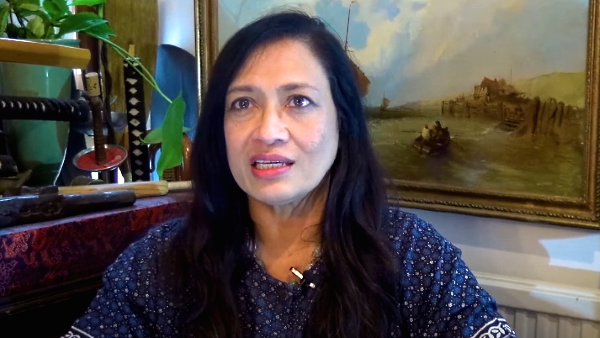
By Mariam Mokhtar
Most airlines allow a cabin baggage allowance of around 8 -10 kg, per person. This is the weight that the airline company gauges can be safely lifted into the overhead luggage compartment.
When she died in 2016, 22-year-old Siti Hajar weighed the equivalent of two of these cabin bags. She was practically skin and bones.
How had she become like that?
This tragedy unfolded when the police became suspicious after Siti Hajar's father, 55-year-old mechanic Anuar Yusof, reported that his daughter had died.
He claimed that Siti Hajar had died after a short "normal" illness and fever, but initial investigations showed that Siti Hajar weighed only 18 kg. This is the weight of a normal 4-year-old.
Post-mortem results showed signs of abuse. The victim had died from a bacterial infection. She had bruises around her eyes and that most of her body had human bite marks. She had been starved and was malnourished.
According to the judge, her neglected state could not have developed over a period of days, and had possibly suffered months of neglect and abuse.
Why would anyone do this to another human being? Why would Anuar and his wife, 40-year-old Murni Ahmad who is Siti Hajar's stepmother, feel the need to torture the girl?
The reporting about the trial is very sketchy and minimal. We were not told if Siti Hajar had been anorexic. We were not told if the family was unable to afford food and therefore deprived Siti Hajar of sustenance as she was Murni's stepdaughter.
We were not told who her main torturer was, nor who bit and punched her. Was it her stepmother? Her father? Her two half-siblings?
Anuar, Murni and Siti Hajar's two siblings, Siti Sarah, 26, and her 19-year-old brother (who was 14 years old during the incident) were arrested in 2016. All of them faced the same charge of abusing Siti Hajar, but the court acquitted and discharged the two siblings from the case after they were found not guilty.
The report of the trial did not throw any light on why the couple tortured their daughter.
The main question "why did parents torture their own daughter?" remains unanswered.
Were they evil sadists? Was Siti Hajar locked in her room with no means of escape?
The family lived in a single-storey terraced house. The walls cannot have been that impenetrable to noise. So, why didn't the neighbors alert the authorities to the abuse?
If Siti Hajar was bitten, was she gagged to prevent her from screaming? Or do today's neighbors not want to get involved?
What about the friends or relatives of the family? Were they not invited to the house? Did they not notice that Siti Hajar was absent? Were they not concerned that Siti Hajar was missing from social events?
Did Siti Hajar's friends not find anything suspicious about her absence if she was prevented from going to meet them? She was not working. If she had, her absence from the workplace would have raised suspicions.
Siti Hajar lived with her father and stepmother in Chukai, Terengganu, whilst her birth mother lives on the west coast, in Penang. Did the mother not keep in touch with her daughter to find out if she was OK?
Did Siti Hajar suffer from mental health issues, for example schizophrenia, and were the couple unable to care for her because they do not know how?
Did they assume she was possessed? Why didn't they contact the medical authorities or the local doctor to ask for help?
Anuar was a mechanic. Did he find it a burden to feed five mouths? Was he suffering from mental health issues himself and struggling to cope?
Siti Hajar was not employed, and Anuar's son had dropped out of school at 13. We have no idea whether Siti Sarah, who was 21 when her older sister died, was working or not.
If money was the problem, why didn't the family seek help from the village head, social welfare services, the zakat board, the local mosque or their ADUN or MP?
Most Malay communities are very close knit. Did they not want to alert the authorities because they did not want the family and their own enclave to suffer embarrassment and humiliation?
Sometimes, social stigma stops people from doing the right thing. This is presumably why Siti Hajar's younger siblings did not tell other people about the shameful abuse happening at home.
Whilst Anuar and Murni did not deny that Siti Hajar could have been suffering and in pain, did they show any remorse for their actions?
The judge, Zainal Azman Abdul Aziz, has sentenced the couple to death by hanging for the murder of Siti Hajar.
How many other Siti Hajars are there in our society? Will we only learn about them after they die? The society cannot allow a recurrence of this tragedy.
Source:
1. Free Malaysia Today: Father and stepmother to hang for starving daughter to death
2. Kosmo: Tali gantung balasan dera anak
3. Berita Harian: Bunuh anak: Suami isteri dihukum gantung sampai mati
(Mariam Mokhtar is a Freelance Writer.)
ADVERTISEMENT
ADVERTISEMENT


































